
Long-read
We need to talk about immigration
The failure to integrate record numbers of newcomers is a social catastrophe in the making.
Britain’s voters have very little to inspire them ahead of the looming General Election. The Conservatives look tired, rudderless and divided under the leadership of prime minister Rishi Sunak. And the alternative of a Labour government led by Keir Starmer is just as unappetising. Neither party seems capable of offering an uplifting vision of Britain’s future.
Nowhere is this dearth of political vision more apparent than on the overlapping questions of immigration, multiculturalism and integration. These will pose huge political, social and economic challenges for Britain in the coming years. Yet few among our political class are willing to properly grapple with these issues. Sunak’s posturing over ‘stopping the boats’ and his ill-fated Rwanda policy will do little to fix a migration and asylum system that is fundamentally broken. Labour would prefer to change the subject entirely.
But we can no longer avoid talking about immigration. New arrivals have reached unprecedented heights this decade. Net migration reached a peak of 745,000 in 2022 – with 1.2million people entering the UK in a single year. To put this into perspective, just 2.2million people migrated long-term to the UK during New Labour’s entire 13 years in power.
What’s more, immigration levels are expected to continue rising in the near future. The ONS issued a national population projection last month, predicting that nearly 14million people will move to the UK between 2021 and 2036. That is more than the present-day population of Greater London, Greater Manchester and Birmingham combined.
Such high levels of immigration should not be a surprise. The UK government’s points-based immigration system, introduced after Brexit, is very liberal. While the UK is no longer beholden to EU freedom of movement, post-Brexit immigration reforms have significantly increased the number of migrants coming from outside the EU, especially from Commonwealth countries, such as India, Pakistan and Nigeria. Of the 1.2million people who arrived in the UK in 2022, 873,000 came from outside the EU.
The recent figures have been inflated by one-off factors, such as an influx of Ukrainian refugees following Russia’s invasion and Hongkongers escaping the authoritarianism of the Chinese Communist Party. Nevertheless, it is clear that the government’s migration policies are the main source of the high numbers.
A failing system
The political establishment’s commitment to this high-immigration model seems to be motivated partly by business interests. Employers have long preferred to import cheap labour than bolster the skills of the domestic workforce or invest in labour-saving technologies. This preference may make sense from an individual firm’s perspective, but it has had unintended consequences across the economy as a whole. When firms don’t feel the need to invest in their workers, wages and productivity tend to stagnate.
Successive governments haven’t only welcomed large numbers of economic migrants. Tens of thousands of people – many of them young men – have also been arriving illegally in increasing numbers over the past few years. While some slip straight into work in the black market, many more try to claim asylum in the UK. In the year until June 2023, there were 79,000 asylum applications relating to 97,000 people.
The UK’s asylum system is failing both migrants and British citizens alike. The Home Office has been unable to process the ever-lengthening backlog of claims, which has left an ever-growing number of people who cannot legally work or rent private accommodation.
The authorities have tended to house these asylum seekers in hotels and other temporary accommodation in some of the most deprived parts of the country. This is causing considerable tension in communities already struggling with a cost-of-living crisis and very few public resources. Last year, we saw these tensions erupt into a full-blown riot in Knowsley, Merseyside.
The overburdened asylum system also poses serious security concerns. At the end of last year, the Home Office admitted that it did not know the whereabouts of more than 17,000 asylum seekers whose claims have been discontinued.
Lax border security has allowed extremely dangerous criminals to slip through the net. Between 1998 and 2020, a quarter of foreign nationals convicted of Islamist terror-related offences had either been granted or had been seeking asylum. The recent case of Abdul Ezedi, suspected of dousing a woman and her children with a corrosive substance, highlighted how even convicted criminals have been granted asylum by the authorities. Ezedi was convicted of sexual assault in the UK before his third asylum claim was approved.
The new sectarianism
The record numbers of arrivals would be less of an issue if the British state were not failing so spectacularly to integrate these newcomers.
In this regard, the violent unrest in Leicester during August and September 2022 was a watershed moment. Mainly Muslim and Hindu youths fought each other in pitched battles on normally quiet suburban streets.
Leicester was once hailed as a model multicultural city. Those riots put paid to that image. They revealed a city that has become increasingly segregated along religious lines. Demographic patterns more than suggest as much. Belgrave South in north Leicester has a population that is 73 per cent Hindu. Its neighbouring ward, St Matthews and Highfields North, is 74 per cent Muslim.
Moreover, there is a generational dimension to Leicester’s problems. The longer established and more settled Hindu and Muslim communities are far better integrated. They see themselves as part of a diverse local community. But these peaceable, intercommunal relations have been disrupted by high flows of recent inward migration – especially from parts of the Indian subcontinent that are marred by aggressive religious tribalism and communal tensions, such as the Daman and Diu territories. This has had a tremendously destabilising effect.
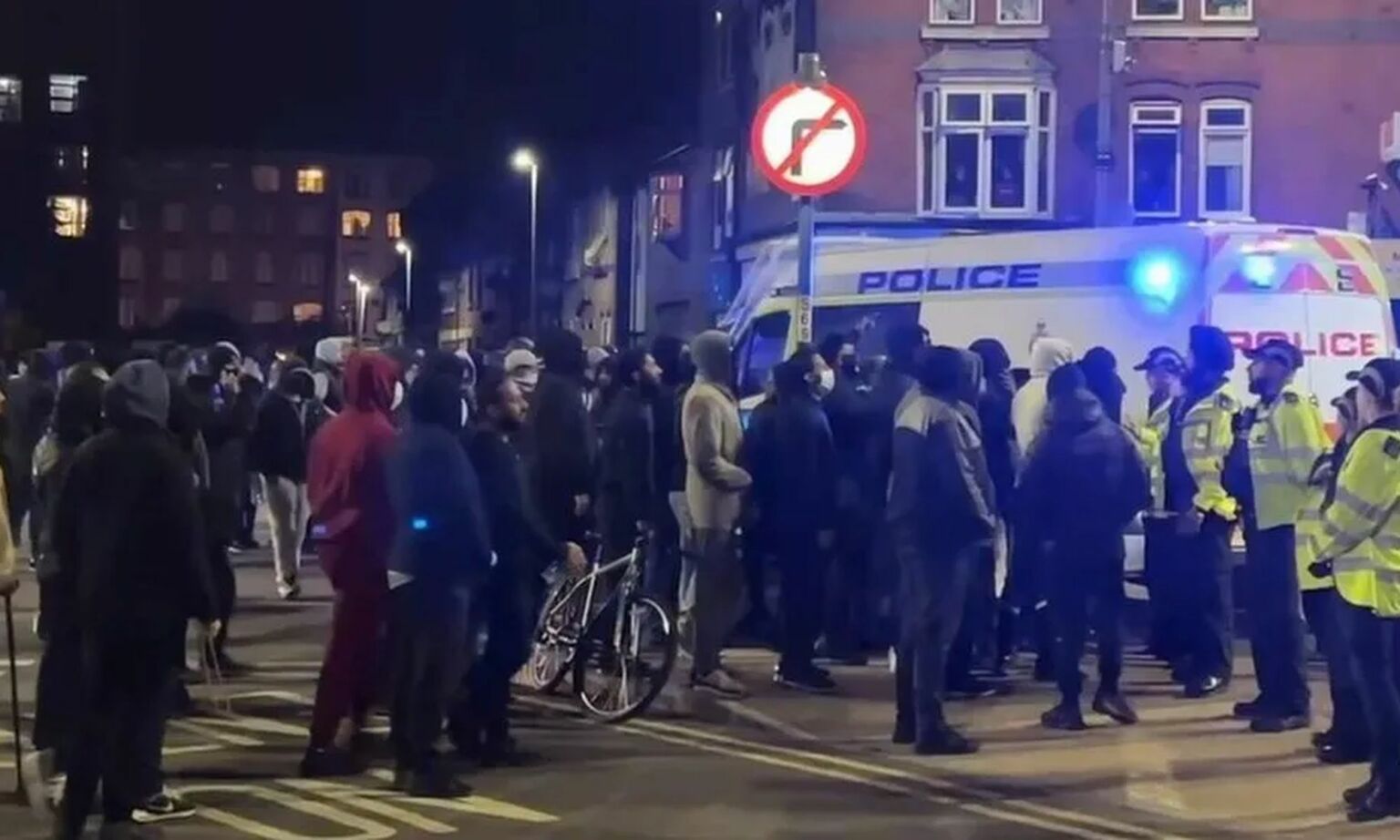
There is also clear evidence that the riots were fuelled in part by the Indo-Pakistani conflict over the disputed territory of Kashmir, with Pakistani-aligned youths battling it out with India-aligned youths. This is a telling detail. The importation of foreign conflicts poses a significant threat to social cohesion in the UK.
We’ve seen this problem rear its ugly head elsewhere, too. In December last year, members of the Eritrean diaspora fought out a sectarian battle in Camberwell, south London. It led to multiple arrests and the hospitalisation of a policeman. While there have been conflicting reports on the origins of the disorder, it appears that those loyal to Eritrean president Isaias Afwerki were clashing with those who oppose the dictator and want him removed from office.
There was a further reminder of the inter-communal tensions growing in our midst last month. In Bournemouth, on the south coast, there was a mass brawl between Afghan and Romanian youths. It resulted in a large-scale police intervention. Several young people had to be taken to hospital.
Perhaps the most alarming consequence of the crisis of integration has been the rise of Islamism. This problem has been thrust back into the spotlight in recent months, following the 7 October terror attack and the outbreak of the Israel-Hamas war.
City centres across the UK have been taken over by weekly pro-Palestine protests. Often the sentiments at the demos go well beyond legitimate support for Palestinian self-determination. Protestesters, many of them young members of British Muslim communities, have glorified Hamas, chanted Arabic war slogans about the slaughter of Jews and called for ‘jihad’. They have also mocked up the Israeli flag with swastikas, shouted anti-Semitic slogans and generally threatened Jewish people. If you’re looking for evidence of the failure of integration, look no further than those marches rife with anti-Semitism.
The majority of British Muslims are not anti-Semitic and do not believe in anti-Jewish conspiracy theories. But it is clear that levels of anti-Semitism are higher in Muslim communities than they are in the general population at large. This is especially true of the more segregated parts of Britain’s Muslim population.
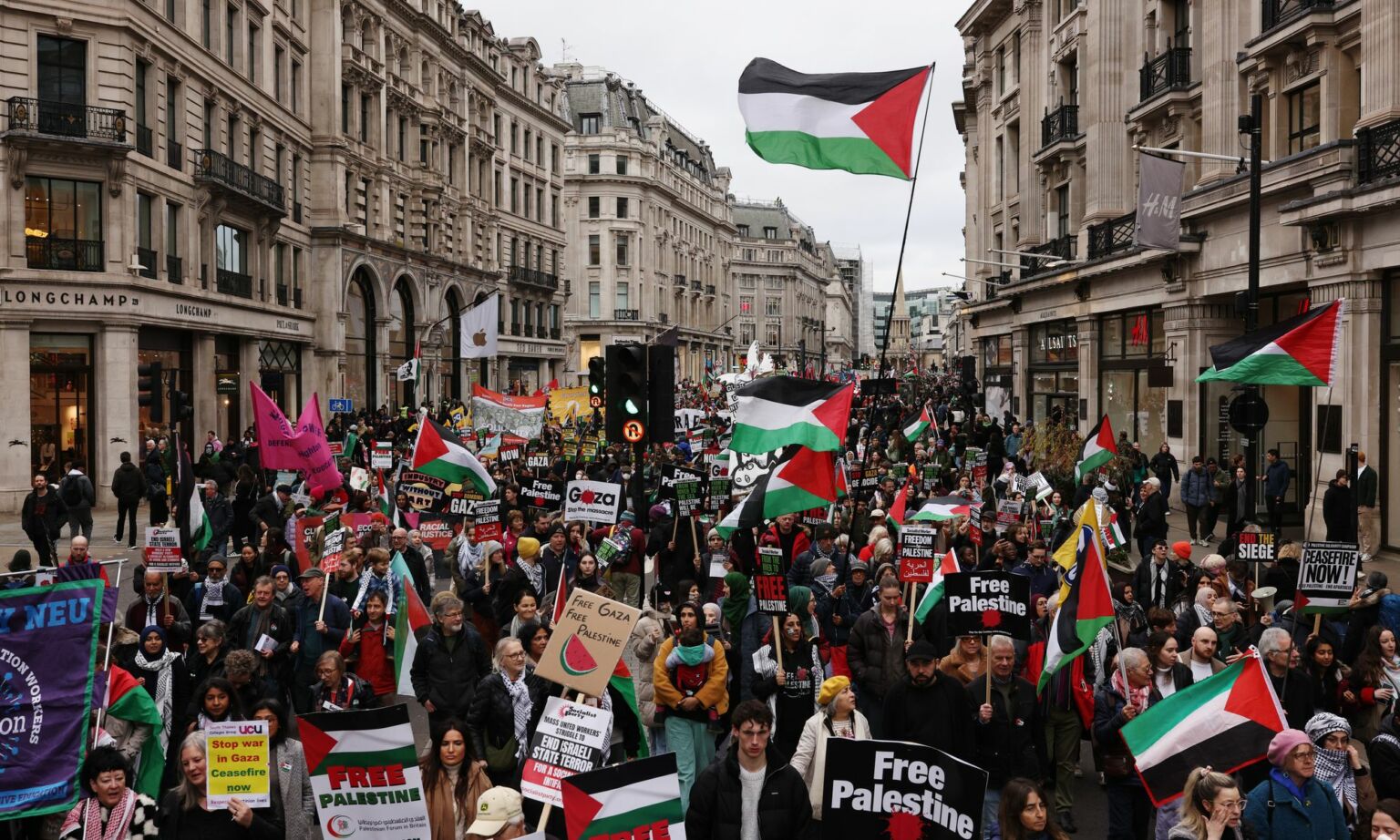
My own study, Muslim Anti-Semitism in Contemporary Great Britain, which was based on December 2019 polling data, showed that Muslims who were less well integrated into British society than others were more likely to believe that British Jews put loyalty to Israel over loyalty to the UK. They were also more likely to think that Jews have too much influence in the spheres of politics, banking, media and entertainment.
There is a danger here that this lack of integration, now spilling out into open antagonism on the streets, is all too easily blamed on immigrants themselves. That misses arguably the main source of our problems – namely, the state’s embrace of multiculturalism and identity politics.
For too long, our political and cultural elites have celebrated difference over what brings people together. Ethnic minorities have been encouraged to see themselves not as citizens of a shared national community, but as members of distinct ethnic or cultural blocs. At the same time, our cultural and political elites have routinely presented Britain as forever stained by racism and imperialism. This has had the effect not of welcoming newcomers, but of ghettoising them.
The rise of the identitarian state
A key plank of multiculturalism is the appointment of so-called community representatives into positions of influence and power. As a result, we have seen the emergence of an identitarian state, populated by tribalists claiming to speak for ethnic and cultural blocs. They are not interested in the best interests of wider society. They are concerned with advancing their own ‘group’ interests and competing for public resources. This ends up sowing further division and animosity.
Take the Metropolitan Police in London. It appears that, in recent years, it has been developing formal relationships with highly divisive figures in the name of promoting multiculturalism and diversity. For instance, the Met had been using Attiq Malik, the chair of the London Muslim Communities Forum (LMCF), as an adviser for several years. It was forced to cut ties with him last November after footage emerged of him leading a chant of ‘From the river to the sea’, which is widely regarded as anti-Semitic, during a pro-Palestine protest in 2021. Similarly, Mohammed Kozbar, a prominent mosque chairman who has publicly praised the founder of Hamas, sat on an advisory panel on hate crime for the Crown Prosecution Service (CPS).
It is not just the appointment of dubious ‘community leaders’ to positions of public influence that is the problem here. The state is also allocating public funding to radical identitarian organisations that advance certain groups’ interests at the expense of others. Indeed, there have even been cases of anti-extremist funding being awarded to Islamists. The recent independent review into the UK government’s Prevent counter-terror programme found that it had funded a group led by an individual with apparently pro-Taliban sympathies.
The rise of Britain’s identitarian state now poses a significant obstacle to integrating migrant communities and forging a cohesive and harmonious society. And yet concerned voters can have no confidence in the mainstream political parties to chart a new course.
Of course, state multiculturalism has not been without its critics. Some Conservatives, including former home secretary Suella Braverman, have spoken robustly on the problem of multiculturalism, the importance of tackling immigration and of improving integration. Yet for all their tough talk around immigration, the Tories have achieved very little in terms of practical policymaking. After all, the record levels of immigration, the broken asylum system and the eruption of sectarian conflicts on to Britain’s streets have all happened on a Tory government’s watch.
The dilemma for British voters troubled by such developments is that there’s little indication Labour will improve matters. Quite the opposite. Labour is enthralled by the very identity politics that has done so much to undermine our ability to integrate migrant communities. And it contains many who complacently advocate an even more lax, quasi-open-borders approach to immigration and asylum. Under a Labour government, the high-immigration, low-integration dynamic shaping British society could develop in an even more destructive direction.
Living with diversity
As challenging as the current situation is, we should remember the positives. Britain, for all its flaws, has managed to establish itself as one of the most successful examples of a multiethnic democracy in the modern world. It remains far better integrated and less racially or ethnically segregated than, say, the US or France.
Yet from the Leicester riots to the upsurge of Islamist anti-Semitism, the warning lights are flashing. We need to recognise that diversity is not always good in and of itself. We need to harness the benefits of a diverse society and address its complications. And that means forging a society tied together by shared experiences, mutual obligations and a sense of common purpose.
For Britain’s diverse society to thrive in the future, we need to start talking about immigration and being honest about its consequences. High levels of immigration are not necessarily problematic in and of themselves. But they have become a problem in the context of economic stagnation, divisive, state-backed multiculturalism and a failing asylum system.
We urgently need a new approach to immigration and integration. It is time for our politicians to wake up to these challenges, before it’s too late.
Rakib Ehsan is the author of Beyond Grievance: What the Left Gets Wrong about Ethnic Minorities, which is available to order on Amazon.
Pictures by: Getty and YouTube.
To enquire about republishing spiked’s content, a right to reply or to request a correction, please contact the managing editor, Viv Regan.


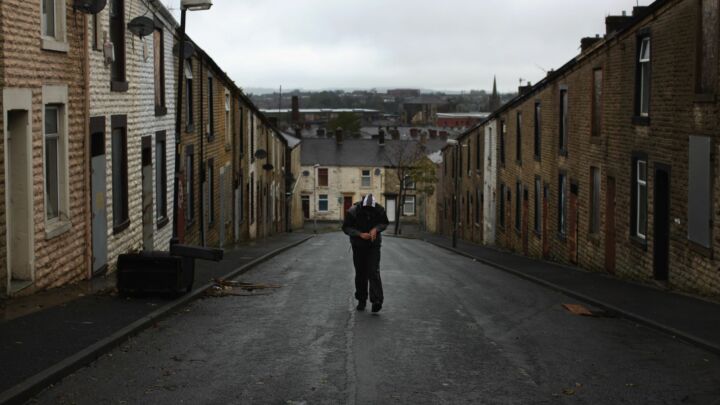

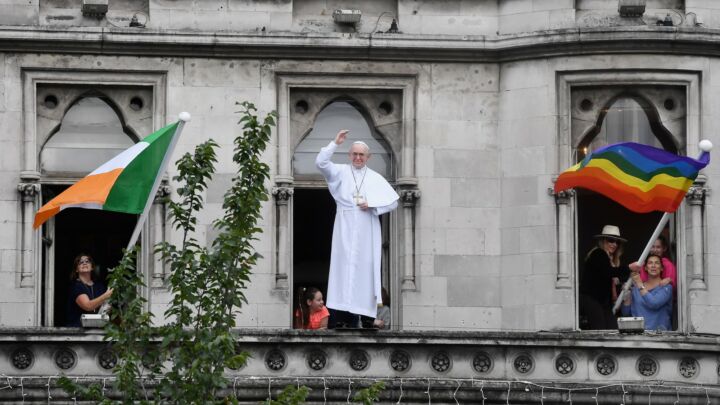

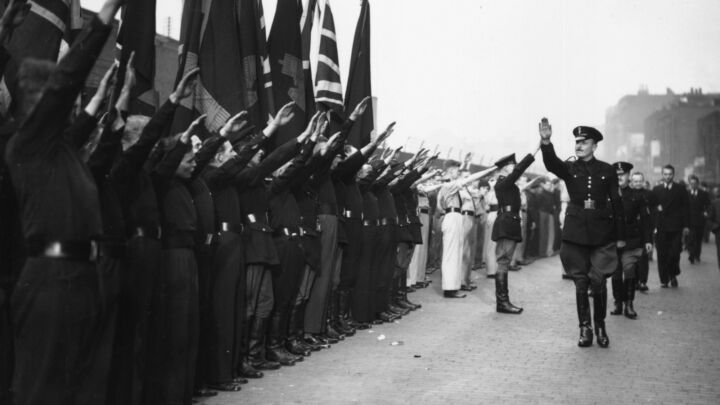
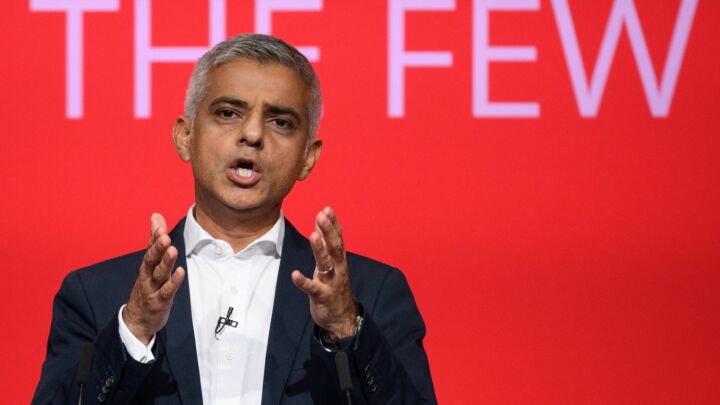

Comments
Want to join the conversation?
Only spiked supporters and patrons, who donate regularly to us, can comment on our articles.